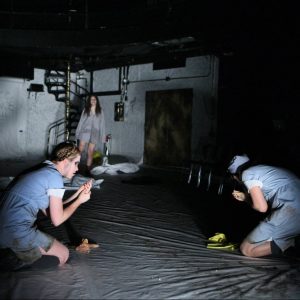The more I do theater, the more I understand its parallels to academic research.
Recently, I attended a workshop with John Doyle, the renowned theater director and Princeton professor. He shared two details of how he begins a creative process. First, he reads the script only a few times before beginning rehearsals. Rather than getting mired in the script’s details, he likes to let ideas brew and leave space for his collaborators’ input. Second, he stresses the importance of entering rehearsals with unanswered questions — because if you already know the answers, your questions aren’t rich enough, and there’s little point in bringing people together.
Approaching my first thesis meeting, I’ve been thinking about this advice.
As I have written (both here and here), I spent this summer in Rio de Janeiro, researching the legacy of art-therapy pioneer Nise da Silveira. During that time, I conducted over 15 interviews, attended numerous workshops, and collected various books and documents. Recorded on audio files and scribbled in notebooks, these constitute — in a sense — my “script.” It is a body of research so juicy, varied, and detailed, that it tempts me to dive right in and begin working my way through problems.
Yet, as I prepare for my first meeting, the most helpful thing I can do is not read over all this material. Delving in right away, I would get lost in details before I have a sense of what interests me. For the moment, it is more valuable to step away from my “script” and reflect. To think critically about my two months in Brazil. To ponder what confused me and what seemed contradictory. To come up with questions that I cannot yet answer.

This strategy has worked for me in theater. Last year, in Elektra, I acted in the two-person Greek Chorus. Following our first read-through, we developed some big questions about the Chorus: Who are we? Why are we here? What makes us otherworldly? What grounds us in the physical world?
These questions, for the most part, went unanswered. But asking them from the start gave us time to test out answers every day, playing with different kinds of movement, costume, intonation — and, of course, finding new details in the script.
In research, such initial questions are similarly helpful. They are a starting point. You are not beholden to them as you work, nor should you avoid the new questions that arise. Rather, if I reflect upon my fieldwork now, I can develop a direction that will guide me later as I decipher my research. It is a productive way to tackle uncertainty at the beginning of my process, which will hopefully lead to certainty by its end.
My take-away is that academic research and artistic creation have much in common. At the core of both are questions about the nature of who we are and the things we see around us. Ultimately, both processes are more fulfilling when approached with openness to the unknown.
— Dylan Blau Edelstein, Humanities Correspondent

